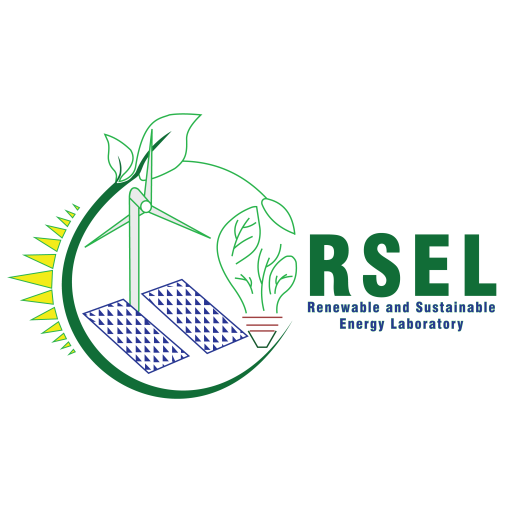Research Projects
To ensure capable human resource development, Higher Educational Institutes in Nepal need transdisciplinary training programs and research centers. Towards this end, RSEL aim to have a transdisciplinary research center with a firm focus on delivering sustainable development solutions centered at the interface of renewable energy (particularly, solar and biogas) and technology driven agricultural enterprises. The lab will produce independent and entrepreneurial workforce equipped with useable knowledge and solutions (scientific as well as policy knowhows) through transdisciplinary projects and research between local, state and international stakeholders. Moreover, this center will strengthen the relationship between academia and the societal institutions through knowledge generation and mutual capacity building. As a whole, RSEL would contribute to the sustainable development goals (SDGs) 7, 1, 3, 5, 13 and 15 with a vision of “Renewable Energy for Sustainable Livelihoods”. Following table lists out current research RSEL is indulged in and previous research and projects it has carried out:
|
Year |
Title |
|
2025 to 2026 |
Blended Learning Environment for Nepal’s Dynamic Energy Development using an Interactive Distance Education Approach (BLENDED-IDEA). |
|
2024 to 2026 |
Project Lead: Advanced Climate Change Education for Sustainable futures and Systems change (ACCESS) Funded by ERASMUS PLUS Funded. |
|
2023 to 2026 |
Project Lead: Technological and socio-economic solutions to reduce small scale combustion emissions in Nepal (SmokefreeHome) Funded by Research Council of Finland. |
|
2022 to 2024 |
Project Lead: Demonstrating applicability of modified prefabricated household floating drum biodigester (ENEP-RENP-II-22-04) Funded by EnergizeNepal Project (NORAD). |
|
2022 to 2026 |
Project Lead (Kathmandu University): Instituting of Research-based education systems for the development of Renewable energy technology in the Circular economy (Re-Tech) is a joint project among the universities in Norway, Nepal, Bangladesh and Sri Lanka: University of South-Eastern Norway (USN)-Norway, Kathmandu University (KU)-Nepal, University of Sri Jayewardenepura (USJ)-Sri Lanka and Shahjalal University of Science and Technology (SUST)-Bangladesh, Funded by Norwegian Partnership Programme for Global Academic Cooperation (NORPART). |
|
2022 to 2025 |
Project Lead (Kathmandu University): Promoting Himalayan Development by Strengthening Teaching and Research on Sustainable Development Goals (ForHimSDG) is a joint project among the universities in Germany, Thailand and Nepal, Potsdam Institute For Climate Impact Research (PIK)-Germany, Asian Institute of Technology (AIT)-Thailand, Kathmandu University (KU)-Nepal, funded by Federal Ministry for Economic Cooperation and Development, German Academic Exchange Service (DAAD). |
|
2022 to 2025 |
Project Lead (Kathmandu University): The Doctoral school in Sustainable Energy Engineering (SEED) is a collaboration between six universities in four different countries: Royal Institute of Technology (KTH), Linnaeus University (LNU) and Lund University (LTH) in Sweden, Kathmandu University (KU) in Nepal, TERI School of Advanced Studies (TERI SAS) in India and Universidad Mayor de San Simón (UMSS) in Bolivia, funded by Swedish Research Council (VR). |
|
2021 to 2024 |
Project Lead (Kathmandu University): Energizing Higher Education – Renewable Energy for Economic Transition (e-REET), a joint project between Institute for Technology and Resources Management in the tropics and Subtropics (ITT), TH Köln (University of Applied Sciences), Cologne, Germany and School of Engineering, Kathmandu University, Nepal, funded by German Academic Exchange Program (DAAD), Germany. |
|
2020 to 2021 |
Project Lead (Kathmandu University): Linne-Palme grant, to develop education exchange on sustainable energy areas, Funded by Linnaeus University, Sweden. |
|
2018 to 2020 |
Project Lead: A Pilot Study to Produce Bioenergy and Fertilizer from Kathmandu University’s Food Waste, Funded by EnergizeNepal Project (NORAD). |
|
2018 to 2019 |
Sectoral Support (Household Energy):Health and Economic Analysis Including Data Analysis and Scenario on Air Pollution under the Urban Health Initiative (UHI) Program in Kathmandu, Funded by World Health Organization (WHO). |
|
2018 to 2019 |
Project Lead: Valorization of Urban Waste to Biogas, Funded by University Grant Commission Nepal. |
|
2018 to 2018 |
Sectoral Support (Bioenergy): Maximizing the Health Benefits of Clean Cooking in Urban Nepal, through Leaders Nepal, Funded by The Global Alliance for Clean Cookstoves (GACC) initiatives. |
|
2015 to 2017 |
Support on Curriculum Development of Interdisciplinary Master Courses in Energy Efficient Building Design in Nepal and Bhutan, Funded by ERASMUS Plus. |
|
2012 to 2014 |
Project Lead (Kathmandu University): High-Rate Anaerobic Digestion for Biogas Production from Wastewater, Funded by RenewableNepal Program (NORAD). |
|
2012 to 2013 |
Sectoral Support (Waste to Energy): Low Carbon Economic Development Strategy – Data Collection and Analysis, Funded by Ministry of Environment, Government of Nepal. |
|
2011 to 2012 |
Project Lead: Energy Recovery Potential from Wastewater in Kathmandu Valley, Funded by Alternative Energy Promotion Center (AEPC), Kathmandu, Nepal. |
|
2011 to 2012 |
Sectoral Support (Waste Sector): National Greenhouse Gas Inventory (Second National Communication), Funded by Ministry of Environment, Government of Nepal. |
|
2010 to 2012 |
Project Co-Lead: Design, Development, and Testing of Biomass Gasifier for Small Sized Internal Combustion Engines, Funded by RenewableNepal Program (NORAD). |
